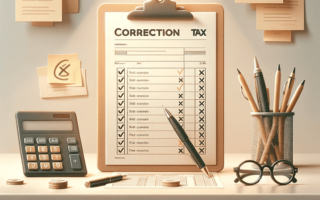Reporting your tax ID number correctly is crucial to ensure smooth processing of tax refunds and payments from your employer. This article provides a step-by-step guide on how to report your tax ID number accurately on IRS forms, avoiding any potential delays or hardships.
Locating the Area for Your Tax ID Number
When filling out forms such as employment applications, form W-9, or form 1040, it is essential to locate the designated area for your tax ID number. Depending on your situation, this could be your:
- Social Security number (SSN),
- tax identification number (TIN),
- Employer Identification Number (EIN) if you are a sole proprietor or LLC owner.
By identifying the correct section, you can ensure that you provide the appropriate tax ID number required for accurate processing.
Writing the Tax ID Numbers Correctly
Once you have identified the correct section, it is crucial to write the numbers accurately on the designated line. For Social Security numbers, ensure that you include all nine digits, with the first three numbers separated by a dash, followed by two numbers and another dash, and ending with the last four numbers. On the other hand, EIN numbers consist of nine digits, typically with the first two separated by a dash from the remaining seven. By following these formatting guidelines, you can avoid any confusion or errors in reporting your tax ID number.
Separating Tax ID Numbers in Provided Boxes
Some forms may provide boxes for each digit of your tax ID number. In such cases, it is important to separate each number and write them in the designated boxes. By writing one number in each box and avoiding any overlap, you ensure that your tax ID number is accurately recorded. This step is particularly important to prevent any misinterpretation or misplacement of digits, which could lead to delays in processing or incorrect tax calculations.
Double-Checking for Accuracy of Tax ID
Before submitting any IRS forms, it is crucial to double-check the accuracy of your reported tax ID number. Take a moment to review the numbers you have written, ensuring that they match the correct format and are free from any errors. By taking this extra step, you can minimize the risk of delays in tax refunds or payments from your employer, ultimately avoiding any unnecessary hardships.
In conclusion, reporting your tax ID number correctly is of utmost importance to ensure smooth processing of tax refunds and payments. By following the steps outlined in this article, you can accurately report your tax ID number on IRS forms, avoiding any potential delays or hardships. Remember to locate the designated area, write the numbers correctly, separate them in provided boxes, and double-check for accuracy before submitting the forms.




